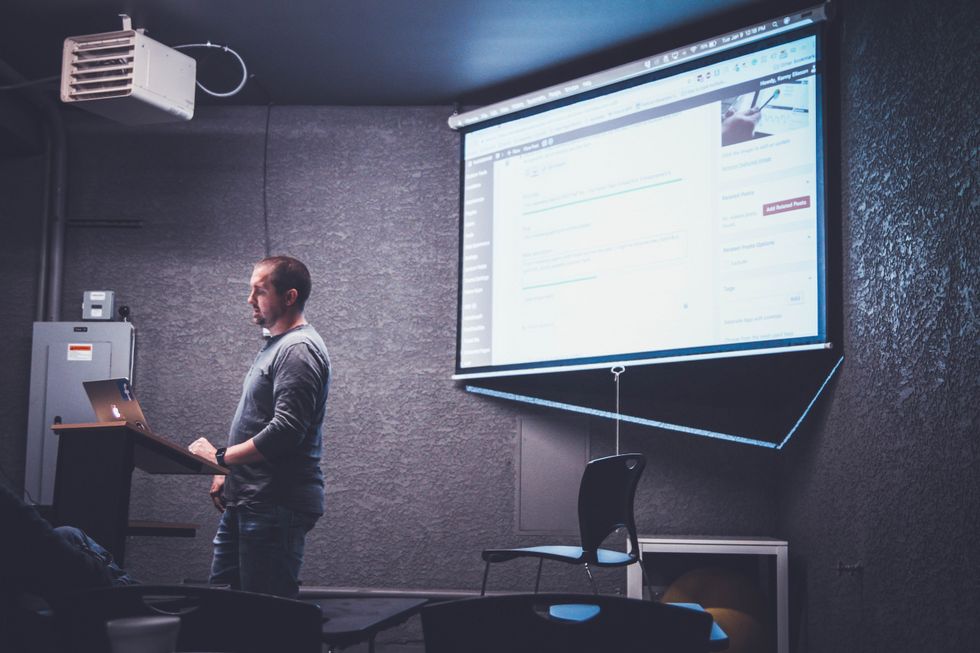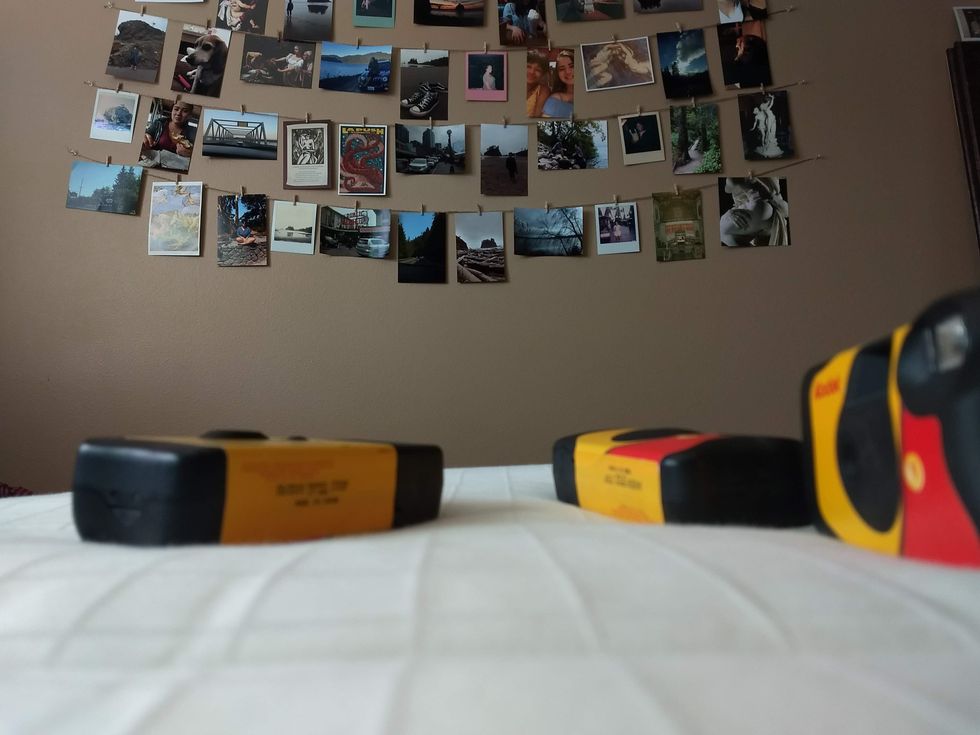So you've written the essays, requested the letters of recommendation, been accepted to study in another country, and it's time to get packing for a trip abroad! This time last year exactly, I was spending my first week of five in Italy for a creative writing program. I've had a lot of time to reflect since then, and there are definitely things I am glad I did, and things I wish I had put more effort into. Studying abroad can open a lot of doors for students for future work and academic opportunities, especially if you do well. It engages in students quite a few skills that we don't always get in conventional classrooms. For me, those skills included walking ten miles a day in the Mediteranean summer heat (minimum some days), taking note of poetry-worthy sensory observations 24/7, murdering Julius Caesar in his own play in the middle of a park, and eating my weight in pasta - among other more scholarly, academic pursuits, of course.
Okay, pasta exaggerations aside (I really did play Marcus Junius Brutus in the play, though, and my plastic cutlery knife sword was quite formidable), there are definitely some things I'm glad I did, and things I wish I had prioritized now that I've had a year to reflect.
1. Build connections with your professors

Photo by NeONBRAND on Unsplash
Something I didn't realize during the several orientations prior to taking off for Europe was how close I would grow to my professors. It's expected that you will form bonds with the other students, but there really is something special about being in a place you've never been with a tight-knit group of people who have similar interests. Your professors, especially, are in a unique position to get to know you really well, too, and a well-cultivated relationship can lead to networking opportunities later. In a normal classroom course, there's often no chance for your professors to truly get to know you as a person, but during study abroad trips there's usually ample time for your professors to work closely with you. Get to know them and let them know you. These types of connections can be so helpful down the line when you're in need of a specific contact, letter of recommendation, or just academic/career help! They're also likely really cool people with interesting stories about their careers and past travels.
2. Develop an understanding of the country's customs and expectations

This is probably something you will cover/have covered in your orientations leading up to the trip, but I want to reiterate it's significance. On my trip, we visited numerous locations that required appropriate dress for entrance. I.e. covered shoulders and knees. It was a sign of respect for the various places, most of which were churches and basilicas, and it was taken very seriously. Dismissing the rules would result in denied entry for the entire group. Social customs were also different. There were many small things to remember in order to not offend the locals, including not touching the produce at the markets - it was appropriate to only gesture and say what you wanted, and it would be bagged up for you. Uber was also banned! We had to use specific taxi apps to order car services, which often didn't take credit or debit cards, which usually left us scrounging for cash. Exact change was also expected anywhere money was accepted, and sometimes the locals would make a fuss if you couldn't produce any.
In short, get to know where you're going and the social expectations and values, it will make a difference.
3. Bring along multiple mediums for documenting your trip

Some students travel internationally all of the time, whether personally or academically. But some students go on their study abroad trip and it's the first time they've left the continent or country - that was my experience. Thus, something really important to me was to make sure I could document my trip well. Unfortunately, I actually ended up dropping my phone onto the airplane runway when I was boarding the flight that would take me across the world and it never turned on again. That was devastating, to realize I would have no way of taking photos without asking to borrow someone else's phone. I'd decided to opt out of bringing my film camera or Polaroid cameras along, so I was empty-handed. Then I got the idea to buy some Kodak disposable cameras – which were nearly $30 a piece.
Bottom line: Bring multiple cameras if you can or recording devices, you never know what could happen.
Something else to consider is engaging in observational drawing, simply taking notes of times, dates and surroundings to look back on, and buying a few cool postcards that will help you remember your time. That's also a great way to unplug.
4. Try journaling every day

Photo by Dariusz Sankowski on Unsplash
Carrying a journal everywhere I went every single day was required for my program, but it's also exactly what I needed. Keeping a written account of what I was feeling and thinking was a great way for me to cope with the changes of being abroad, and it's so fun to be able to look back and read what I was experiencing. This is an awesome way to let go of electronics for a bit and connect with yourself and your surroundings. If you're feeling artistic, you can draw, or make lists of random things you see, the windows you count in an old building, bits of conversation — all of those things are tidbits of your experience, and it will be so special to have that forever.
5. Consider continuing your work

Photo by Hannah Wei on Unsplash
In the program I was apart of, we had to turn in a final portfolio of the work we did while in Italy. The work throughout the program was largely independent, and it could run at the intersection of many of our personal interests. Sometimes it can be difficult to begin or plan creative projects on your own, but when you're given time and a platform to do them for, like a study abroad program, then before you know it, you have the first draft! My program focused on art history and poetry, but the students who were apart of it were accounting, business and neuroscience majors. They just liked to write, too. And many of them have gone on this past year continuing to write, explore their creative ideas, and strengthen their skills because they were supported and pushed to try something they hasn't the chance to prior. Consider, when all is said and done and you're back at home, putting in some extra effort to transform your work into something larger, or continue exploring it. You never know what you're capable of, sometimes, until you're handed an opportunity.



















